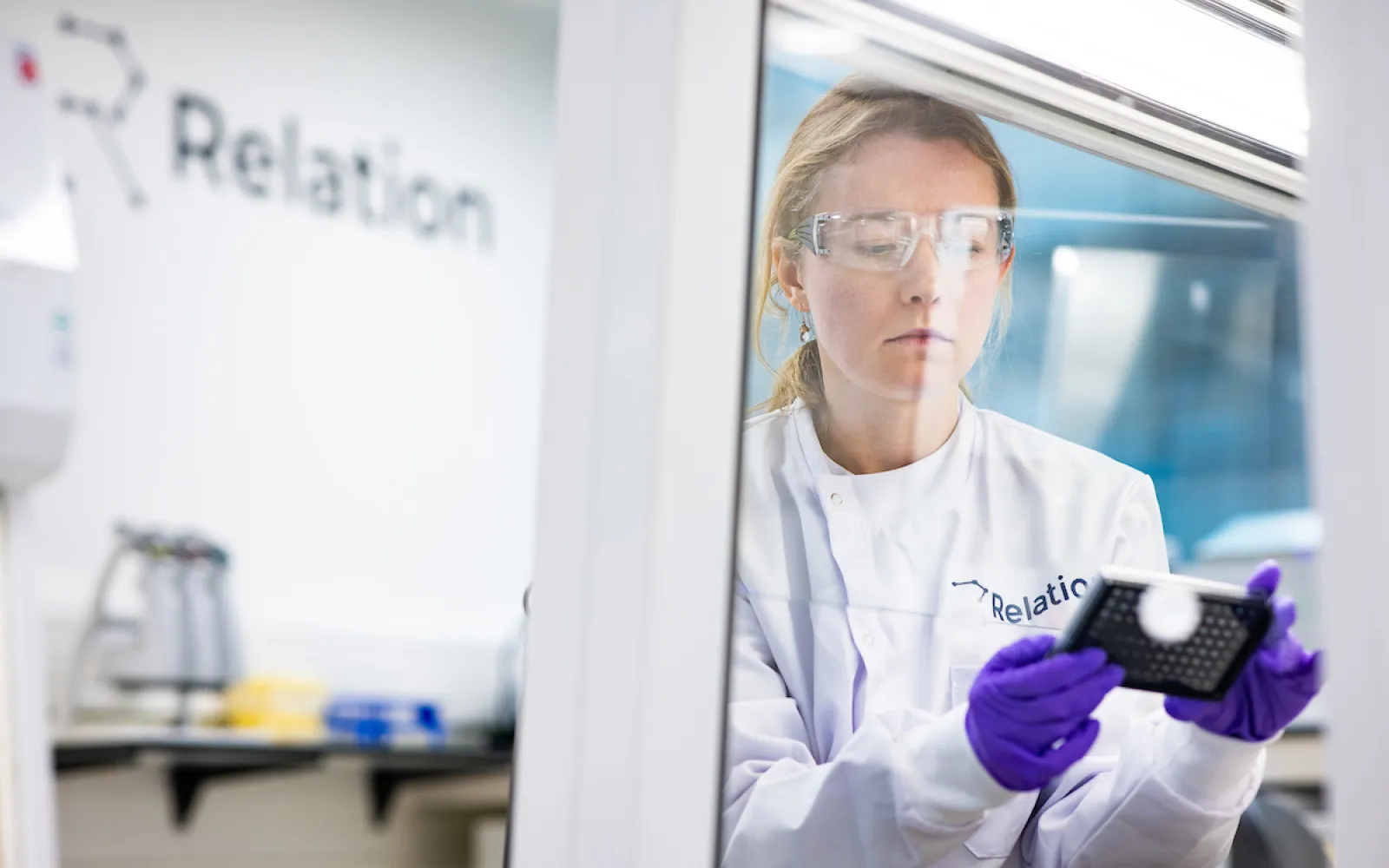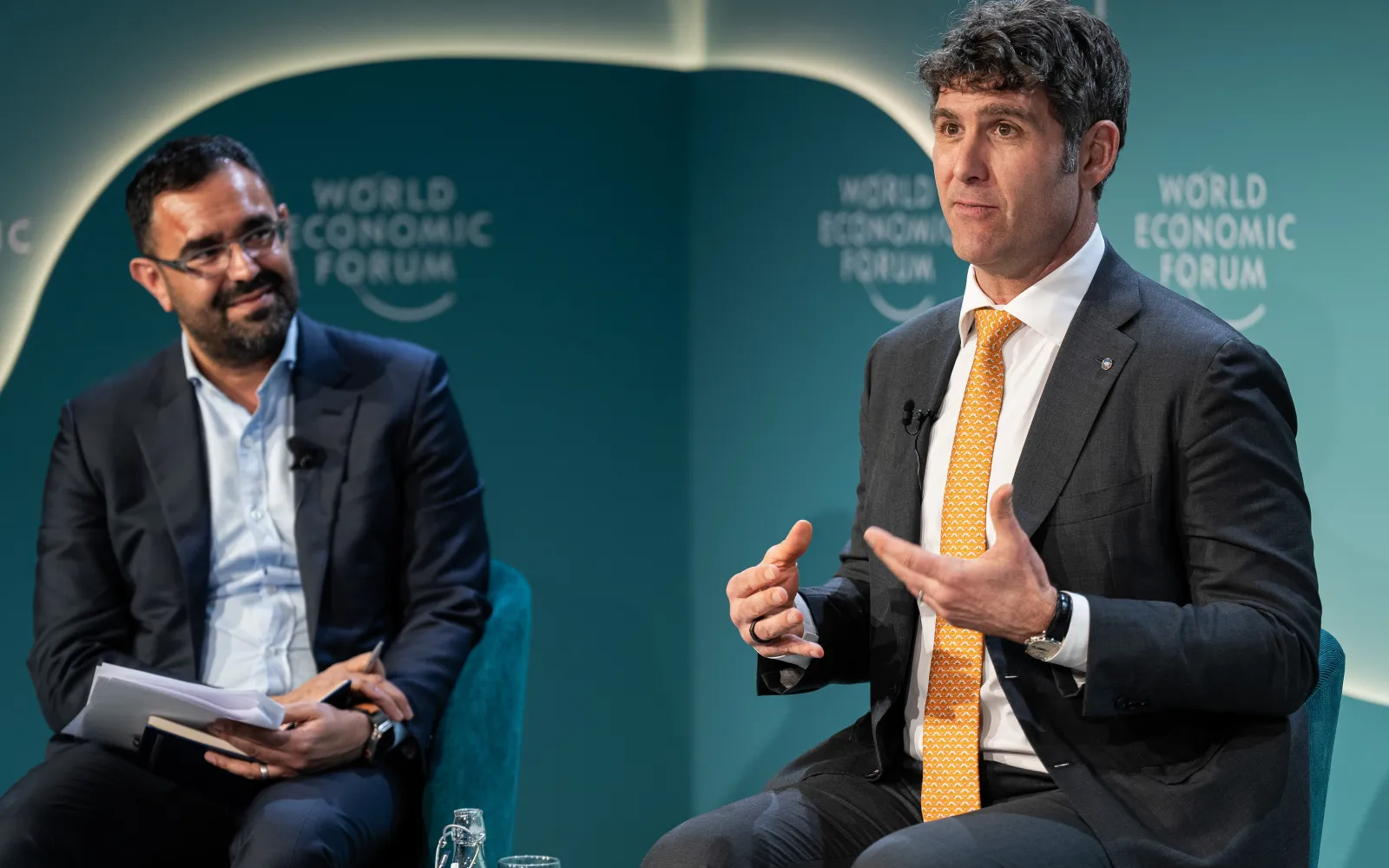

Relation
Using machine learning to understand the biology underlying disease
Relation Therapeutics, a DCVC TechBio company dedicated to finding new biological targets for drugs to cure complex human diseases, has entered into a research partnership with pharmaceutical giant GSK that will lead to a new generation of drugs for fibrotic disease and osteoarthritis.
Relation will receive a total upfront payment from GSK of $45 million and will be eligible to receive success-based collaboration payments of up to $63 million — totaling $108 million. Relation will also be eligible for potential preclinical, development, commercial, and sales milestone payments averaging $200 million per target, along with tiered royalties on net sales of products.
As far as we can discover, this is the largest deal ever for a seed-stage biotech or TechBio company. Founded in London less than five years ago, the company has raised $80 million over three rounds of seed funding (most recently a round led by DCVC and NVIDIA’s venture arm NVentures, preceded by rounds led by DCVC and Magnetic Ventures, which led the very first round) to grow a booming business around its pioneering new data-driven method for uncovering novel drug targets for complex diseases.
The founding idea at Relation — in common with its TechBio siblings in DCVC’s portfolio — is that AI models are only as powerful as the data they’re trained on. Starting with its first research program on osteoporosis, Relation built a “lab-in-the-loop” research workflow that that involves sequencing the genomes and RNA transcriptomes of cells from both healthy and sick individuals. Active-graph machine learning models and other forms of AI comb through that data to predict which gene variants are associated with disease risk. Then the company knocks out those genes in new cell lines and studies their growth to quantify the biological effects (how much mineralization takes place, in the case of bone cells). This data, in turn, points to new proteins and pathways that could be targeted to modify the disease in question.
Because Relation’s models have been trained on many kinds of genetic data, they can be deployed quickly to study many diseases (as we observed in our 2024 Deep Tech Opportunities Report). The GSK partnership will expand the approach to two new and undertreated diseases that afflict millions of patients: fibrotic disease and osteoarthritis. It amounts to a very large bet on the effectiveness of Relation’s platform for discovering novel targets for multigenic diseases — those that can be traced to multiple genetic changes. And the company’s focus on bone, joints, skin, and inflammation is only the beginning.
There are a lot of things that make Relation different from a typical biotech company, but one of them is that its founders and scientists are obsessively developing breakthrough medicines for patients who long for better alternatives. (CEO David Roblin is a former National Health Service doctor, and chair Charlie Roberts trained in reconstructive surgery.) They’re intimately familiar with the ravages of diseases like osteoporosis and osteoarthritis, and they understand that traditional approaches to drug discovery may not work as well for complex diseases. The company’s motto is, “Because the patient is waiting.” That’s what makes us so proud to work with Relation and their new research partners to bring life-changing treatments to the clinic.


